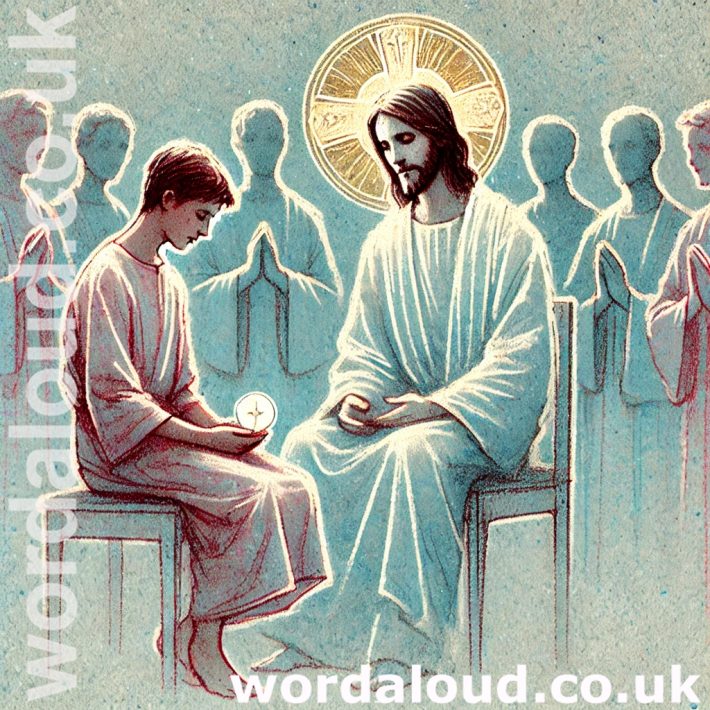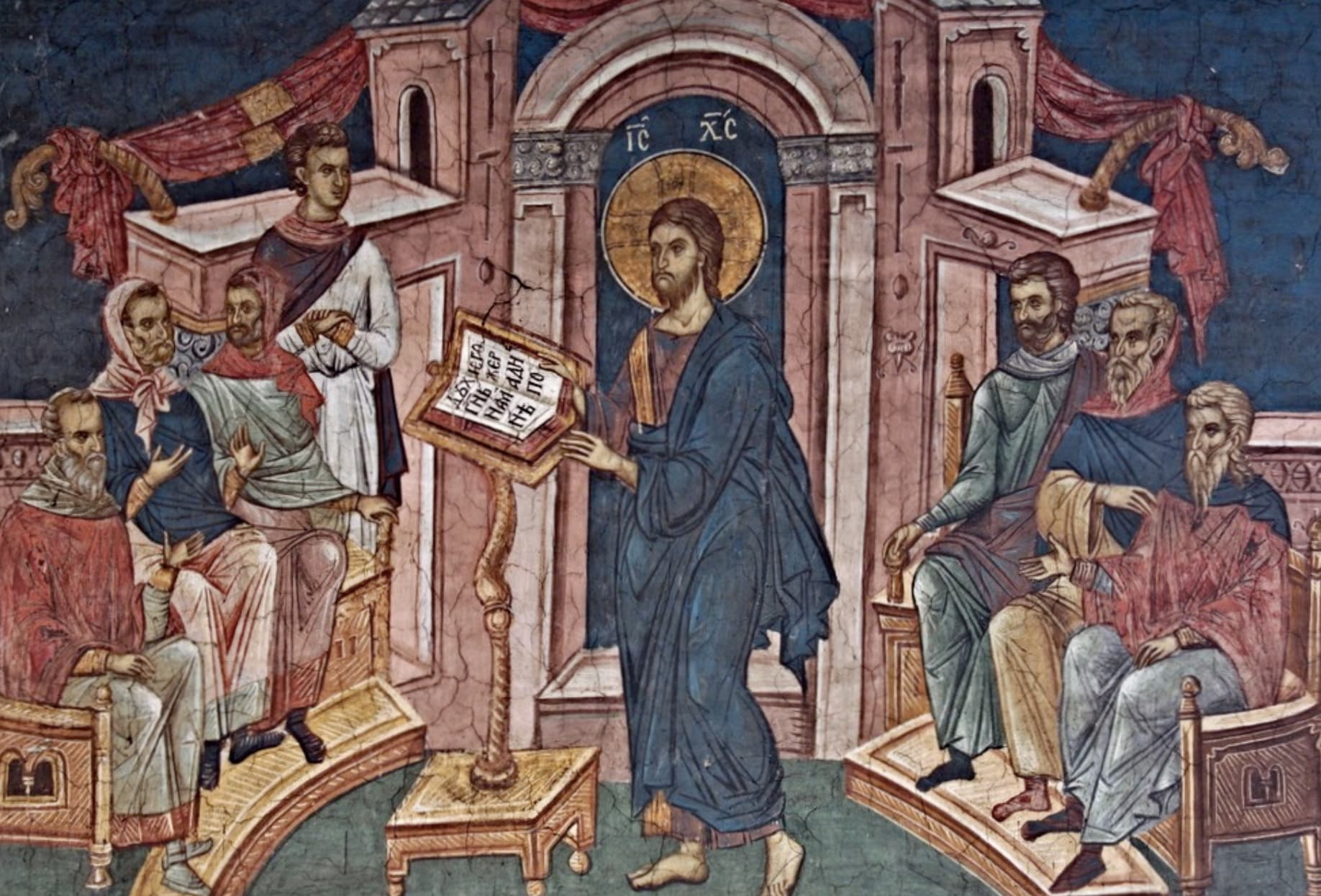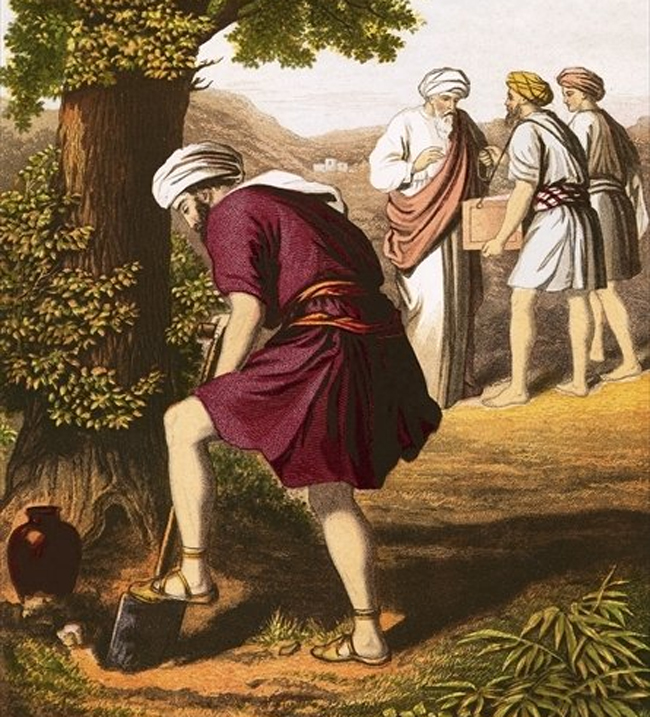Christian Art | A Boy At Prayer With Jesus In The Eucharist | Christian Community | Jesus Is The Head Of The Church
Office Of Readings | Eastertide Week 5, Friday | A Reading From The Sermons Of Blessed Isaac Of Stella | Jesus Is The First Born Of Many Brethren
‘Jesus is the first-born of many brethren.’
The Mystical Body | Christ As Head And Body United
Blessed Isaac opens with a profound image: just as a human head and body form a single person, so too does Christ—head and Church—form a single, unified reality. This vision reflects a central doctrine of Christian theology: ‘Totus Christus’, or ‘the whole Christ’. The head is Jesus, born of the Virgin Mary; the body is the Church, composed of all who are joined to him in faith and baptism.
‘All the members form one body… the one Son of Man… the one Son of God.’
This is a deeply biblical vision, echoing Saint Paul’s description in 1 Corinthians 12 and Romans 12, where the Church is a living organism with Christ as its head. For Isaac, this union is not metaphorical but real—Christ is not complete without his body, and the Church has no life apart from its head.
Threefold Unity | Nature, Person, Sacrament
Isaac distinguishes three levels of Christ’s identity and our participation in it:
- The Son of God is one with God by nature (divine).
- The Son of Man is one with God in his person (Incarnate Word).
- We, his body, are one with him sacramentally.
This structure reveals how Christians participate in the divine mystery not by essence (as Christ does) but through grace and adoption. Through baptism and the Eucharist, we become sons in the Son—adopted children of the Father. We echo Christ’s own prayer: ‘Our Father, who art in heaven’ (cf. Matthew 6:9).
Isaac stresses that what Christ is by nature, we become by participation:
‘What he is of himself in all fullness, we are as participants.’
This reflects the early Christian and patristic doctrine of theosis—our transformation into divine likeness—not in substance, but in union.
The Spirit’s Work In Birth And Rebirth
Isaac draws a parallel between Christ’s physical birth from Mary and the Christian’s spiritual rebirth in baptism:
- Christ is born of the Virgin by the Spirit.
- We are born again in the waters of baptism by the same Spirit.
This is a deliberate echo of John 3:5: ‘Unless one is born of water and Spirit, he cannot enter the Kingdom.’ Christ takes on our nature, and in return, he grants us his grace—cleansing us of sin and incorporating us into his mystical body.
The Cross And The Waters | Atonement And Baptism
Isaac’s meditation turns toward Christ’s atoning death. On the cross, Christ bore the ‘sum total’ of the body’s sin. His sacrifice was not for himself—who is sinless—but for us. Just as Christ bore our sin on the cross, he washes it away in the waters of baptism.
‘In his own body on the cross he bore what he had washed from his body by the waters of baptism.’
This line mirrors 1 Peter 2:24: ‘He himself bore our sins in his body on the tree.’ The paradox that Isaac highlights is that Christ is both the one who saves and the one who is saved—not because he needed salvation, but because he stood in our place.
Priest, Sacrifice, And God | Christ’s Total Offering
One of the most striking lines in the sermon is this:
‘He himself is priest, sacrifice, and God.’
This tripartite identity of Christ as offerer, offering, and divine recipient is rooted in the Letter to the Hebrews (see Heb 7–10). Christ is the new High Priest, offering himself—not bulls or goats—on the altar of the cross.
- As priest, he mediates.
- As victim, he substitutes.
- As God, he reconciles.
This theology encapsulates the Paschal mystery: through suffering and death, Christ unites the human and divine, restoring communion between God and creation.
The Role Of The Christian | Sons In The Son
Isaac returns again and again to the dignity of the Christian, not as an isolated soul, but as a living member of Christ:
- We are sons of God by adoption (Romans 8:15–17).
- We receive the Spirit of sonship, crying out, ‘Abba, Father.’
- We become what Christ is, not by essence, but by sharing in his life.
This radically elevates the Christian vocation: through Christ’s death and resurrection, we are not merely followers—we are participants in his divine life. We are saved, not from the outside, but from within the very being of Christ.
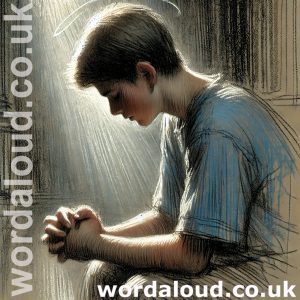
A Reading From The Sermons Of Blessed Isaac Of Stella | Jesus Is The First Born Of Many Brethren
Just as the head and body of a man form one single man, so the Son of the Virgin and those he has chosen to be his members form a single man and the one Son of Man. Christ is whole and entire, head and body, say the Scriptures, since all the members form one body, which with its head is one Son of Man, and he with the Son of God is one Son of God, who himself with God is one God. Therefore the whole body with its head is Son of Man, Son of God, and God. This is the explanation of the Lord’s words: Father, I desire that as you and I are one, so they may be one with us.
And so, according to this well-known reading of Scripture, neither the body without the head, nor the head without the body, nor the head and body without God make the whole Christ. When all are united with God they become one God. The Son of God is one with God by nature; the Son of Man is one with him in his person; we, his body, are one with him sacramentally. Consequently those who by faith are spiritual members of Christ can truly say that they are what he is: the Son of God and God himself. But what Christ is by his nature we are as his partners; what he is of himself in all fullness, we are as participants. Finally, what the Son of God is by generation, his members are by adoption, according to the text: As sons you have received the Spirit of adoption, enabling you to cry, Abba, Father.
Through his Spirit, he gave men the power to become sons of God, so that all those he has chosen might be taught by the firstborn among many brothers to say: Our Father, who are in heaven. Again he says elsewhere: I ascend to my Father and to your Father.
By the Spirit, from the womb of the Virgin, was born our head, the Son of Man; and by the same Spirit, in the waters of baptism, we are reborn as his body and as sons of God. And just as he was born without any sin, so we are reborn in the forgiveness of all our sins. As on the cross he bore the sum total of the whole body’s sins in his own physical body, so he gave his members the grace of rebirth in order that no sin might be imputed to his mystical body. It is written: Blessed is the man to whom the Lord imputes no guilt for his sin. The ‘blessed man’ of this text is undoubtedly Christ. Insofar as God is his head, Christ forgives sins. Insofar as the head of the body is one man, there is no sin to forgive; and insofar as the body that belongs to this head consists of many members, there is sin indeed, but it is forgiven and no guilt is imputed.
In himself he is just: it is he who justifies himself. He alone is both Saviour and saved. In his own body on the cross he bore what he had washed from his body by the waters of baptism. Bringing salvation through wood and through water, he is the Lamb of God who takes away the sins of the world which he took upon himself. Himself a priest, he offers himself as sacrifice to God, and he himself is God. Thus, through his own self, the Son is reconciled to himself as God, as well as to the Father and to the Holy Spirit.
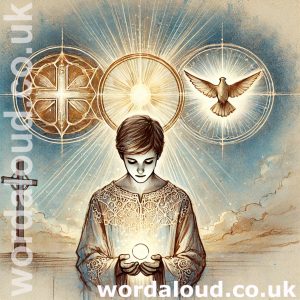
Glossary Of Terms
Adoption (Divine Adoption)
A theological concept meaning that believers become children of God not by nature, but by grace through Christ. It refers to the status granted to Christians who, by baptism and faith, are made part of God’s family.
See Romans 8:15–17; Galatians 4:4–7.
Baptism
A sacrament of initiation in the Christian faith that signifies the cleansing of sin and rebirth into a new life in Christ. Isaac of Stella refers to baptism as the moment believers are incorporated into Christ’s body by the Spirit.
Body of Christ
This term has a double meaning:
- Literal: Christ’s physical body, offered in sacrifice.
- Mystical: The Church, understood as all who are united to Christ through the Holy Spirit, sacraments, and faith.
Christology
The branch of theology dealing with the nature, role, and person of Jesus Christ. Isaac explores both the divine and human natures of Christ and their implications for believers.
Divinization / Theosis
A patristic term (especially in Eastern Christianity) referring to the process by which a person becomes more like God through grace. Isaac implies this when he says we become what Christ is by participation.
Grace
The free and undeserved help God gives to respond to his call. In this context, it is through grace that believers are adopted as sons and daughters of God and united with Christ.
Head and Body Theology
A doctrine (especially emphasized by Paul and the Church Fathers) that describes Christ as the head and the Church as his body, forming a unified being. This underlies Isaac’s point that Christ and the Church together constitute the ‘whole Christ’.
Incarnation
The Christian belief that the eternal Son of God took on human flesh in the person of Jesus Christ. Isaac emphasizes that the head (Christ) is born of the Virgin by the Spirit, initiating the redemption of the body (us).
Mystical Body
A theological term describing the Church as not merely an institution but a living, spiritual organism united to Christ. This body shares in his death, resurrection, and mission.
Paschal Mystery
The passion, death, resurrection, and ascension of Jesus Christ. This mystery is at the heart of Christian faith, and Isaac’s meditation deeply engages with it, especially as Christ brings salvation through ‘wood and water’ (the cross and baptism).
Priest / Sacrifice / God (Threefold Office of Christ)
Christ is described by Isaac as:
- Priest: One who offers a sacrifice.
- Sacrifice: That which is offered.
- God: The one to whom the sacrifice is offered.
This highlights Christ’s complete and unique role in our salvation.
Sacramentally
When Isaac says we are united to Christ ‘sacramentally’, he means through the visible, grace-filled signs instituted by Christ—particularly baptism and the Eucharist—through which divine life is imparted.
Salvation
Deliverance from sin and its consequences, granted by God through faith in Jesus Christ. Isaac explores the mystery of salvation as something accomplished by Christ on the cross and applied to us through the sacraments.
Sons in the Son
A phrase expressing the idea that Christians are made sons and daughters of God through union with Jesus, the only Son by nature. This expresses the intimate relationship Christians have with God through Jesus.
Totus Christus (The Whole Christ)
A Latin phrase meaning ‘the whole Christ’, referring to the unity of Christ the head and the Church his body. Blessed Isaac’s sermon is a deep meditation on this reality.

